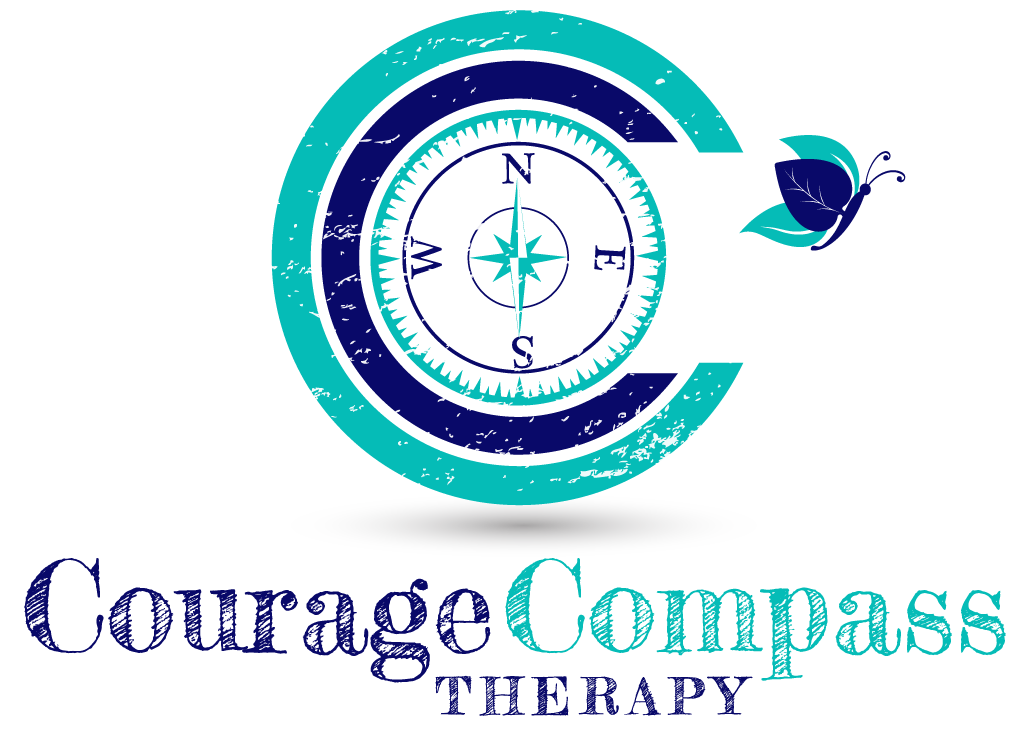When I went to the national training in 2014, I had no idea how central The Daring Way would become in my life—how it shapes my beliefs, my values, and my work. Helping people access and utilize their courage is one of the most remarkable transformations to witness, imho.
The core of the work revolves around the idea that vulnerability is not weakness, it’s courage. It takes a minute to wrap your mind around that, as our culture leans towards supporting the idea that vulnerability is weakness, yet those who embrace their vulnerability are often celebrated and admired for their courage.
Let’s take Elizabeth Vargas, the ABC correspondent, for example. Awhile ago, there were news reports that she was being treated for alcoholism. Maybe people gasped, or thought, “Her? How could she be an alcoholic? She has it all together.” When she completed treatment, she did a special interview with Diane Sawyer all about her alcoholism, her secret keeping, and her need to heal herself and her relationships. She also wrote about it in her book. Her courage to be vulnerable and expose her process gives others the permission to do so as well. It’s courageous and daring to expose that messy middle.
We often see transformations on tv, on social media, or on magazine covers of the before and after (weight loss, anti-aging, house renovation, etc). However, most of the time, we rarely see the messy middle. Thus we are led to believe that the transformation is easy, anyone can do it. The path from A-Z actually has 24 other letters, it’s not a quick 2-step thing.
The consequences of this are plenty. It means when we get into our own messy middle, we think we are failing somehow. We think that others are more successful and we just pretty much suck at life. It would be very shaming to share that process, since we assume everyone else has learned to trick the system and get to Z faster. So we keep it a secret. We can’t expose this part of the vulnerability; it would be too painful. We think we’re not allowed or that others will judge our inadequacy. The shame just piles on.
Shame thrives on secrecy, silence, and judgment. When shame is operating our lives, we usually numb with TV, wine, Facebook, work, food, etc. Shame might lead us to hiding out in our lives underneath the numbing, people pleasing to show others we’re worthy of approval and love, or getting snarky, sarcastic, and mean at times. It’s hard to get in touch with the shame, versus numbing or engaging in these behaviors, because it’s painful and hard. It’s not hard for everyone else, so we detach from the difficulty of our own journey.
So what’s the alternative? Brené explains that courage originates from the Latin word cor, for heart, and originally meant to tell the story of who you are with your whole heart. What does this actually mean? It means being honest with ourselves and a few trusted others with the whole story, including the secrets and the messy middle, not just the bright, shiny, and impressive parts. Brené talks about not orphaning the parts of our stories we don’t like. The messy middle parts.
I have to use the tools of this work just like everyone else. I’ve had to embrace my own messy middles even if I’m still in the middle of some of those journeys, parenting being #1. I try to use my courage in the ways it’s trickled its way into my life.
Courage {to me} means:
Enforcing boundaries (what is ok and not ok)
Living in alignment with my values (respect, courage, and connection)
Embracing the risk and uncertainty of vulnerability and stepping into the possibility of joy
Daring to try something new, even if it’s not fast and easy (B-Y, not A-Z)
Being brave and afraid at the same time (a Brené-ism)
Taking accountability for mistakes and learning from them
Humility
It doesn’t mean:
Recklessness
Arrogance
Impulsivity
Irresponsibility
Denial
Dismissiveness
I wasn’t a person who believed in woo-woo spiritual stuff and I’m slowly coming around to this idea of the power of the universe. It seems very timely that my son is suddenly engaging in a make believe game of a mama lion and baby lion. Why a lion, why not a dog, a tiger, or a bear? I have no idea. Or maybe I do? Lions are a symbol of courage (thus Lionheart). Am I just overanalyzing this? Possibly. Or possibly not. From Quora.com: “Lions are symbols of strength and courage and have been celebrated throughout history for these characteristics. So, ‘lion heart’ means the heart full of bravery, courage, dominant personality and of course boldness.”
I hope this is what it means.
Cheers to your daring.



